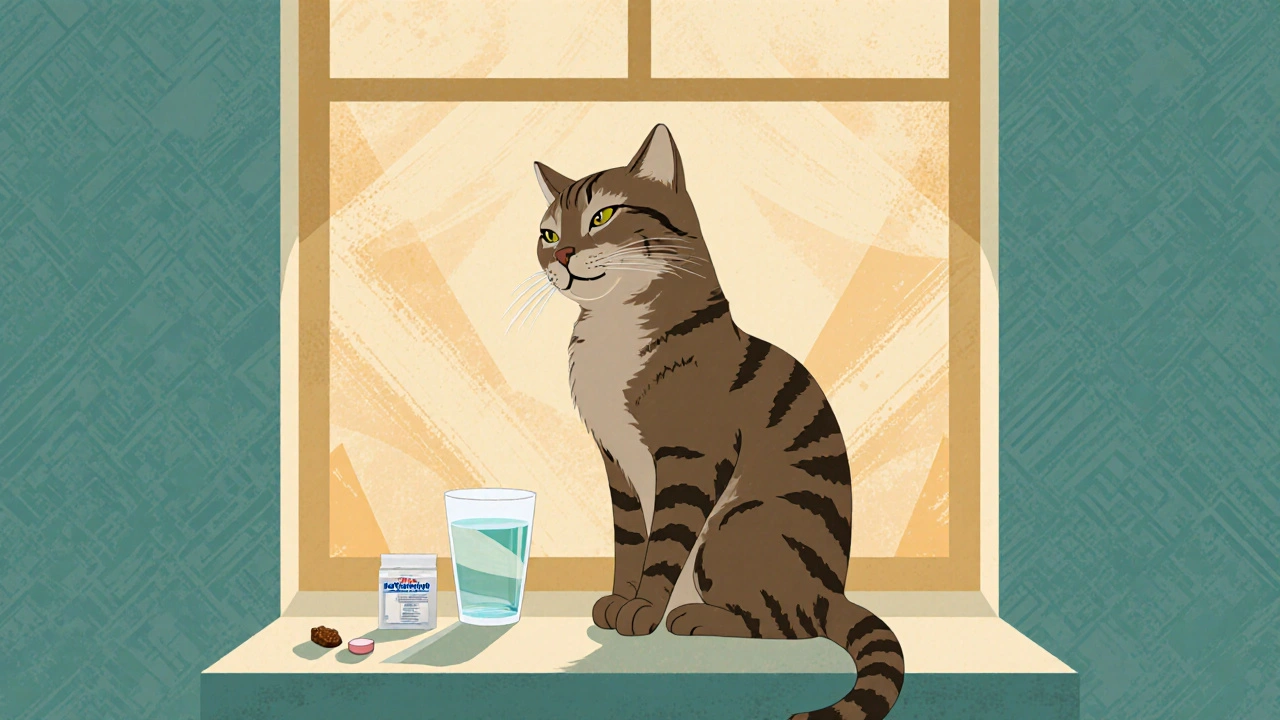Feline Hyperthyroidism: Causes, Symptoms, and Treatment Options
When a cat develops feline hyperthyroidism, a condition where the thyroid gland produces too much thyroid hormone. Also known as hyperthyroid disease in cats, it’s one of the most common hormonal disorders in middle-aged and senior cats, often showing up after age 10. This isn’t just about weight loss or increased appetite—it’s a systemic issue that can strain the heart, kidneys, and overall metabolism if left unchecked.
Many owners notice their cat acting restless, meowing more than usual, or losing weight even though they’re eating more. These aren’t just signs of aging—they’re red flags for an overactive thyroid. The root cause is usually a benign tumor on one or both thyroid glands, which pushes out excess hormone. Unlike in humans, thyroid cancer is rare in cats with this condition. What’s more, the disease often hides alongside other issues like kidney disease, making diagnosis trickier. Vets typically confirm it with a simple blood test measuring T4 levels, but sometimes they need to run additional checks if the results are borderline.
Treatment options vary based on the cat’s age, other health problems, and owner preferences. Medication like methimazole is common and non-invasive, but it needs daily dosing and regular blood monitoring. Radioactive iodine therapy is highly effective and often curative, though it requires a short hospital stay and special facilities. Surgery is another option, but it carries risks, especially in older cats with heart issues. Some owners explore dietary management with iodine-restricted food, which works well if the cat eats nothing else. Each choice has trade-offs in cost, convenience, and long-term care.
What’s clear from the posts here is that cat owners are looking for real, practical advice—not just textbook definitions. You’ll find comparisons between treatments, insights into managing side effects, and tips for monitoring your cat’s condition at home. Whether you’re just noticing changes in your cat’s behavior or you’ve already been diagnosed, this collection gives you the facts you need to make smart decisions with your vet. There’s no one-size-fits-all fix, but with the right info, you can help your cat live longer, feel better, and stay active well into their senior years.

Methimazole for Cats: Treating Feline Hyperthyroidism
Methimazole is the most common treatment for feline hyperthyroidism, helping cats live longer with fewer symptoms. Learn how it works, side effects, dosing, and how to give it to your cat safely.
